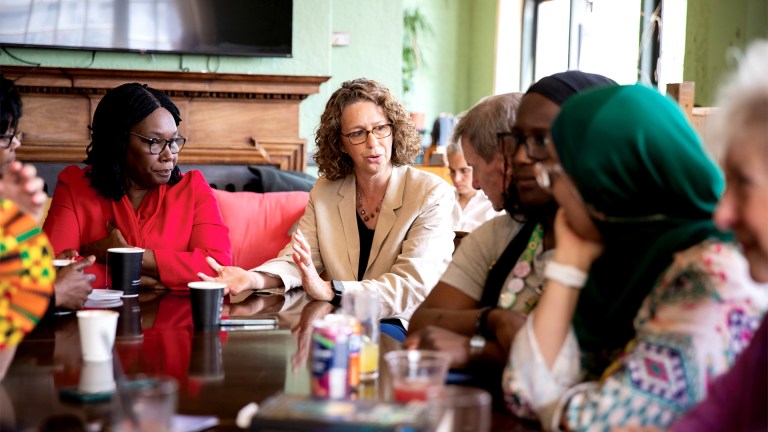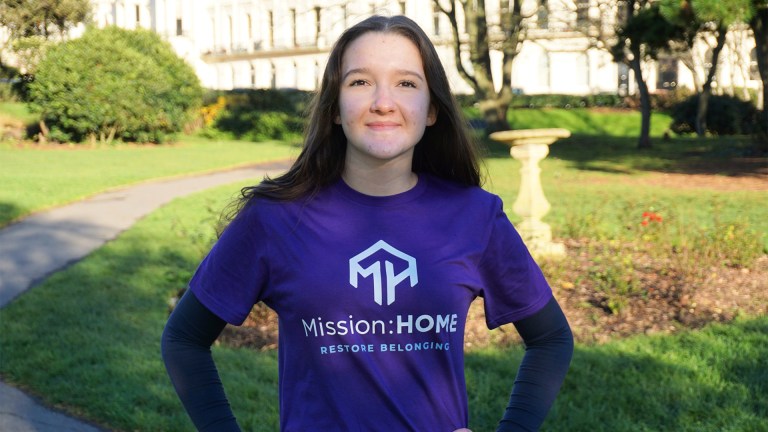But just as she embraced her identity, “life fell apart.” To be diagnosed with HIV, de Havilland recalls, felt like “the end”. In the 1980s and early ’90s, most people with HIV were eventually diagnosed with AIDS – Acquired Immune Deficiency Syndrome. By 1987, the epidemic had killed hundreds of thousands of people, decimating the UK’s queer communities. As fear spread, so too did misinformation and stigma. People thought HIV could be spread by touching or spit, and those with the diagnosis were ostracised.
“Being a trans woman living with HIV was very hard in the 1990s, it was a double whammy,” de Havilland says. “I had been a hair and makeup artist and a model agent… but I spiralled. I ended up addicted to heroin and crack.”
Destitute and wandering the streets of Soho, de Havilland struggled to support herself. She sold The Big Issue for a while, which was a “lifeline”. But death was everywhere.
“At one stage, my gay friends were dying of AIDS, and my trans friends were being murdered,” she says.
“I got to know death so well. We’d be blasé about it. Someone wouldn’t show up at a night in the club and we’d joke ‘probably dead’.”
De Havilland still wanted gender affirmation surgery. But her HIV status made the operation much riskier. In 1991, after years of searching, she found a surgeon who agreed to carry out the procedure. “I didn’t know how long I had left, but I was happy with my body at last,” she adds.
A new life as a trans and HIV advocate
Thanks to modern antiretroviral treatment, people with HIV can live long and full lives. Some 35 years after her diagnosis, de Havilland is healthy and happy.
“It’s been a journey… I’m now working at Chelsea and Westminster hospital. Nineteen years ago I was on a life support machine there,” she says.
Around 39 million people globally were living with HIV in 2022. Over the course of the year, 1.3 million people became newly infected with the virus. The majority (53%) of all people living with HIV were women and girls – a fact that de Havilland works to highlight.
“Too many women … it’s not on their radar,” she explains. “There’s still this perception that it just impacts men, gay and bisexual men. Women, both trans and cis women, are at risk too.”
Speaking out for “her tribe” has given de Havilland a new purpose.
“People with HIV, and trans people – we are human beings too,” she says. “Apart from all the labels, we deserve human rights like every other human being.”









